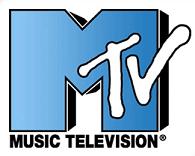 Today in the Riff‘s Head-Spinning Irony Department, it’s the first part of MTV.com’s 3-part series, “The Year the Music Industry Broke.” Sure, lots of people have been saying it’s been a tough year for record sales or for record company employees, but tell us, MTV, how bad is it?
Today in the Riff‘s Head-Spinning Irony Department, it’s the first part of MTV.com’s 3-part series, “The Year the Music Industry Broke.” Sure, lots of people have been saying it’s been a tough year for record sales or for record company employees, but tell us, MTV, how bad is it?
Make no mistake about it, 2007 was a b-a-a-a-d year for the industry. According to Nielsen SoundScan, album sales were down 15 percent from 2006 (a trend that’s continued for eight straight years now); big-name artists jumped ship in increasingly complicated — and messy — ways; and the powers-that-be seemed to get even more heartless and disconnected, thanks to a series of lawsuits, feuds and terrible decisions. In fact, you could probably say that 2007 was Year Zero. Things started to change because they couldn’t possibly get any worse.
The article continues by detailing a few truly landmark moments (Paul McCartney leaving EMI for Starbucks, Radiohead doing something or other on the internet) and listing a bunch of random stuff (Stars made their album available for download kind of early!) and adding it all up to “death of industry.” It’s tough to sort out the conflicting emotions one has reading this stuff: yes, the music industry has screwed up royally over the last few years, and there were some high-profile ship-jumpers, but I’m not sure how the Eagles’ Wal-Mart-only LP hitting #1 is a sign of the apocalypse. And of course, not so very long ago, there were those who said MTV’s reorientation of popular music towards hot babes was part of the problem, and these days the only music you hear on Music Television is in the background of “The Hills.” But the very fact that somebody at MTV is allowed to bite the hand that feeds (to grudgingly reference Nine Inch Nails again) could be as big a sign as any of the end of the industry as we know it.


